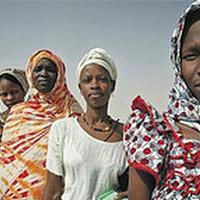In the May 2017 newsletter of Ron Smith Care Centre operated by the Rand Aid Association, a registered non-profit organisation offering a continuum of care to older persons in Johannesburg South Africa, I noted the birthdays of Kitty Venn that turned 100 years old on April 5; Betty Haughton that turned 101 years on April 19 and Grace Snook who will celebrate her 102nd birthday on the 18th of May. These three ladies are privileged to be well-cared for in a state of the art facility comparable to the best in the United Kingdom.
Others in sub-Saharan Africa (SSA) − as a matter of fact millions over the next 30 years − will not have access to / the choice of quality formal care. In almost all countries in this region, with the exception of South Africa, no significant formal (public, private or third sector) care provision systems and capacities exist (WHO, 2015). Even in South Africa the provision of formal care is mainly limited to residential / institutionalized care and provision of quality home-based care programmes is patchy.
Point is: there is an obvious and increasingly acknowledged need for a range of appropriate long-term care options in SSA as the older population is expected to increase to 161 million by 2050.
At the same time the youth population in this region is predicted to double to over 830 million by 2050 (ILO). The high burden of youth unemployment throughout the SSA region obviously begs for the social and health long-term care (LTC) needs of older people to be linked with broader development agendas. To put it frankly: does LTC for older adults in need provide employment opportunities for younger generations in SSA?
That the interface of the rise in non-communicable diseases with increasing longevity will have an enormous socio-economic impact on (South) Africa is evident and well-acknowledged. How these subsequent health needs and its care management could offer potential opportunities for inclusive economic growth and job creation as well as greater economic stability is, however, under-explored.
Evidence by an Expert Group presented to the UN High-Level Commission on Health Employment and Economic Growth proposed various inter-sectoral actions to guide and stimulate the creation of health and social sector jobs to advance inclusive economic growth. Of particular interest and relevance is the emphasis on gender equality and the empowerment of women; investing in training to reach the under-served; reviewing the role of community-based health workers and other underutilized groups within the health and non-health workforce; and explore the educational needs of young people to prepare them for employment in the health sector – keeping in mind technical and vocational education and training. The Expert Group further proposed a five-year action plan (2017–21) to accelerate progress towards inclusive economic growth and universal health coverage.
Besides meeting an apparently growing demand, an expansion of formal service provision needs to be considered as contributing to widening of employment opportunities for Africa’s youth. As such the formal care economy may contribute to broader African efforts to establish the conditions needed to achieve a demographic dividend in the region. How to operationalize it needs urgent and decisive action.
About the Author
Dr. Jaco Hoffman is a Senior Research Fellow at the Oxford Institute of Population Ageing and co-ordinates the African Research Network on Ageing (AFRAN) and the Society and Environment Research Cluster.
Comments Welcome:
We welcome your comments on this or any of the Institute's blog posts. Please feel free to email comments to be posted on your behalf to administrator@ageing.ox.ac.uk or use the Disqus facility linked below.
Opinions of the blogger is their own and not endorsed by the Institute
Comments Welcome: We welcome your comments on this or any of the Institute's blog posts. Please feel free to email comments to be posted on your behalf to administrator@ageing.ox.ac.uk or use the Disqus facility linked below.













